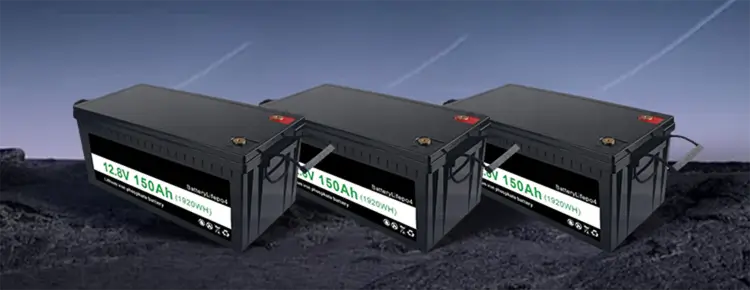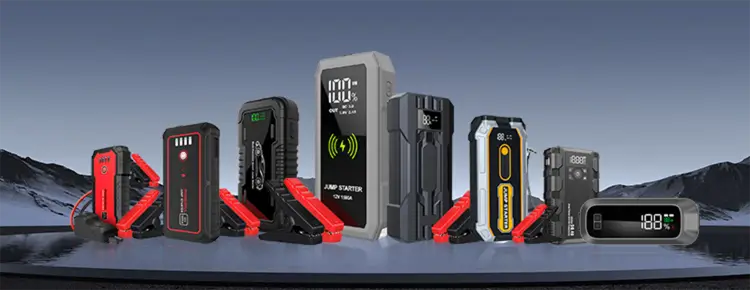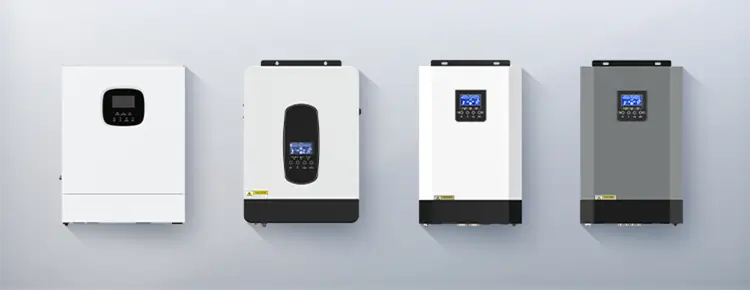We've all been there—you're out running errands, and your portable power station is sitting in the car while you dash into the store. But when the sun is blazing and temperatures inside your vehicle soar, you might wonder: Is it safe to leave my portable power station in a hot car?
The short answer is: It's not a great idea. Extreme heat can cause several issues, from reduced battery life to potential safety risks. Let's break down what happens when portable power stations are exposed to high temperatures and what you can do to protect your device.
The Risks of Leaving a Portable Power Station in a Hot Car
1. Safety Concerns: Overheating and Fire Hazards
Lithium-ion batteries, which power most portable stations, don't mix well with excessive heat. When exposed to high temperatures (like inside a parked car on a summer day), these batteries can become unstable. In extreme cases, this could lead to:
- Overheating – The battery may get hotter than intended, damaging internal components.
- Swelling or Leaking – Prolonged heat exposure can cause the battery to expand or leak electrolyte fluid.
- Fire Risk – While rare, extreme heat combined with poor battery conditions could increase the risk of thermal runaway, leading to fire or explosion.
Most quality power stations have built-in safety features (like temperature sensors and automatic shutoffs), but pushing them beyond recommended limits isn't worth the risk.
2. Battery Health: Heat Accelerates Wear and Tear
Even if your power station doesn't overheat, heat still takes a toll on battery longevity. Lithium-ion batteries degrade faster when stored or used in high temperatures. Consistently exposing your power station to a hot car can lead to:
- Reduced Capacity – Over time, the battery won't hold as much charge as it used to.
- Shorter Lifespan – You might find yourself replacing your power station sooner than expected.
Most manufacturers recommend storing lithium-ion batteries at room temperature (around 20-25°C / 68-77°F) for optimal lifespan.
3. Performance Issues: Efficiency Drops in Extreme Heat
Heat doesn't just affect long-term battery health—it can also impact performance in the moment. If you try using a power station that's been baking in a hot car, you might notice:
- Slower Charging – High temps can cause the battery management system (BMS) to throttle performance to prevent damage.
- Unexpected Shutdowns – Some devices will automatically turn off if they detect unsafe temperatures.
4. Potential Long-Term Damage
Repeated exposure to extreme heat can cause permanent damage to your power station's internal components. This might lead to:
- Faulty Charging Circuits – The device may struggle to charge properly.
- Reduced Power Output – It may not deliver the same wattage as before.
- Complete Failure – In worst-case scenarios, the power station could stop working altogether.
What Do Manufacturers Recommend?
Most reputable brands (like Jackery, EcoFlow, and Bluetti) explicitly warn against leaving power stations in hot cars. Here's what they typically advise:
- Storage Temperature: Keep the device in a cool, dry place (usually between -20°C to 45°C / -4°F to 113°F for storage, but lower for optimal health).
- Operating Temperature: Avoid using the power station in extreme heat (many shut down above 40-45°C / 104-113°F).
- Avoid Direct Sunlight & Enclosed Hot Spaces – Even if the outside temperature is mild, a parked car can reach dangerous levels quickly.
What Should You Do Instead?
If you must leave your power station in the car, take these precautions:
- Park in the Shade – Reduces interior car temperature.
- Use a Thermal Bag or Insulated Case – Helps regulate temperature.
- Bring It Inside – If possible, take it with you instead of leaving it in the car.
- Let It Cool Before Use – If it's been in a hot car, allow it to reach a safe temperature before charging or discharging.
Final Verdict: Better Safe Than Sorry
While an occasional short stay in a warm car might not destroy your power station, regular exposure to extreme heat will shorten its life and increase risks. To keep your portable power station running efficiently for years, store it in a cool, dry place—not in a scorching-hot car.
Got more questions about power station care? Check out our other guides on maximizing battery life and safe storage practices!



